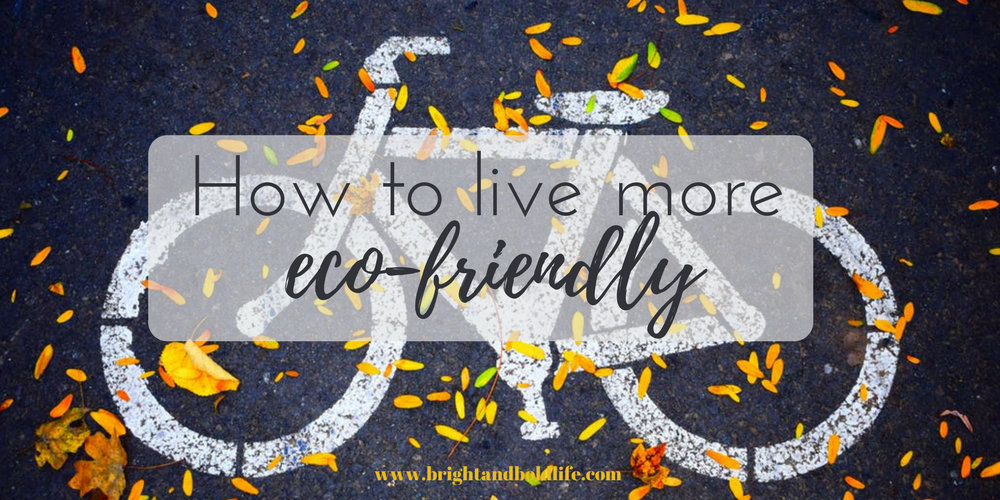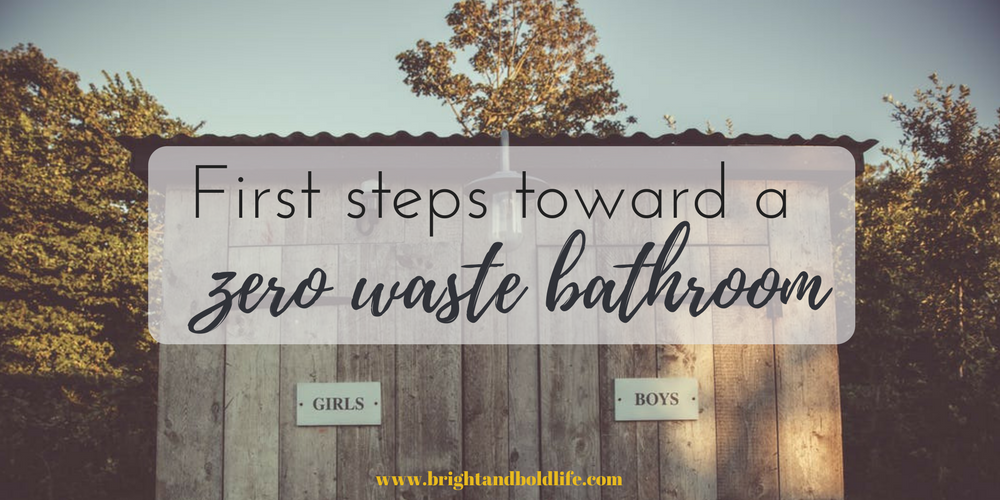24 min read
Caring for the environment has become very trendy. “Sustainable” is the buzzword of the decade and more and more people are becoming interested in organising their lives in a greener way.
You might wonder why caring for the environment is so important to people. Yes, nature is lovely and it would be a shame to destroy it all. But changing your life in order to save a couple of trees might seem a bit unnecessary to you.
As a Christian, I believe that God has created the earth and all living beings. The Bible tells us that humans are ‘the pinnacle’ of creation. We are God’s masterpiece. He gave us the earth to inhabit, to cultivate, to steward. This can make us draw the conclusion that nature is not that important. We are interested in people, their well-being and their safety. We want to bless humans and don’t want to spend our limited time and resources on making sure that all the donkeys and flies and plants are ok.
However, if we care about humans and their wellbeing we must care for our planet.
If we care about humans and their wellbeing we must care for our planet. Click To TweetWhy care for the environment?
Why? In simple terms: because this planet is our habitat. We depend on it for food, water and air. Disrupting ecosystems can cause disruptions in food production, availability of clean water and can cause natural disasters. This is not some distant future possibility but it is a reality we are facing already.
Us here in the West might feel fairly safe and experience an abundance of food but this is not the reality for many people in this world.
Disaster Prevention
“Climate change is amplifying the risk of extreme weather disasters by increasing the destructive power of storms and floods. At the same time, rising seas, shifting rainfall patterns, drought and other slow-onset changes are eroding people’s land, natural resources and security, and magnifying existing vulnerabilities.” (Oxfam, 2017)
The poorest in this world are the least equipped to withstand extreme weather events and have little resources to respond to crises.
A good example of this is to compare the consequences of an earthquake in a developed country to a developing nation. A developing country is less likely to have the resources needed for monitoring, prediction and response. Houses are often not able to withstand tremors that could be absorbed by many structures in developed nations who are able to invest more money into safe buildings. Also, even if a developed country does experience destruction from natural disasters, in most cases people have some level of insurance, savings, support from family and the state. This often is not the case in poorer nations. Here disasters often affect whole families and the state does not have the infrastructure to respond.
Many of us feel compelled to donate money towards emergency help in disaster zones. This is great, however, it is more than necessary for us to prevent those disasters from becoming more frequent and severe.
Food Security
Developing nations are not only disproportionately affected by climate change impacts in terms of disasters but also suffer a greater variability in climate and regular weather which affects harvests and therefore food availability.
“In Africa, between 75 and 250 million people are projected to be exposed to increased water stress due to climate change by 2020. Agricultural production is projected to be severely compromised in many African countries, adversely affecting food security and exacerbating malnutrition.
(…)
Freshwater availability in Central, South, East and Southeast Asia, particularly in large rivers basins, is projected to decrease by the 2050s. Morbidity and mortality due to diarrhoeal disease primarily associated with floods and droughts are expected to rise in East, South and South-East Asia due to projected changes in the hydrological cycle.” (Tanner & Horn-Phathanothai, 2014)
Climate Change and the overexploitation of resources has severe impacts on the survival of millions of people. Excessive animal agriculture especially contributes to deforestation, soil degradation and water contamination.
What can we do?
As a Christian, I believe we are called to care especially for those with no voice, the poor and the marginalised in this world. Therefore, if we care about social justice it is essential to care for the environment and to strive to live more eco-friendly.
This might feel a bit overwhelming at first, but it does not have to be. The thing to remember is this: every little helps. No one can change their life overnight. But everyone can make small changes. And when lots of people make those changes we can change our culture. Turn away from overconsumption and wastefulness and instead create a world for our fellow humans, children and grandchildren that values creation and tries to use it in a way that leaves enough for everyone else.
When lots of us make small changes, we can change our world. Click To TweetWays to care for the environment
Taking steps toward zero-waste
Waste disposal is causing major emissions of greenhouse gases and toxic pollution, it contaminates freshwater and soil. Reducing our waste, especially plastics can have a hugely positive impact. Some ways to create less trash:
- Re-use: Rather than buying new things, repair and re-use household items, clothes, plastic bags etc. Buying second hand or swapping clothes is a great way of acquiring new items for your wardrobe without creating extra toxins or using more resources.
- Recycle: We all know how to separate our waste and recycle. I try and make conscious effort to buy things that come in recyclable packaging. If you have the option between paper and plastic – paper is always a better choice. Where paper biodegrades within a few years, plastic can take thousands of years to disintegrate.
- Reduce: The best way of avoiding waste is to reduce our consumption. Especially when buying clothes it’s good to think twice before you buy. Opt for a higher quality item that lasts you longer rather than buying lots of cheap, low-quality clothing.
Read more: Getting started with zero waste bathroom
Transport
The transport sector is responsible for a great amount of fossil fuel burning (which causes CO2 emissions). Finding alternatives to driving your car everywhere (even if it is just for a few journeys each week) is a great way to reduce your carbon footprint and show care for the environment.
- Public transport is often a good option to get from A to B. You don’t have pay for parking and you can drink as much wine as you want.
- Lift-sharing is also a great way of reducing emissions per person. There are some carpooling websites where you can offer or find lifts. An added bonus: you might make some new friends along the way.
- Do your health as well as the environment a favour and walk or bike to places. Fresh air, movement and zero pollution!
- Go on local holidays. Often the countries we live in are full of beautiful places we never get to explore. Rather than flying far away, hopping on the train to somewhere close by is a great alternative. (And you can have as many liquids in your luggage as you like.)

Energy use
Reducing our energy consumption curbs the amount of CO2 emissions that are released into the environment from power stations.
- Replacing all your light bulbs with LEDs saves a significant amount of energy. This is also a great way to save some dollars.
- When you make big purchases like getting a new washing machine, pay attention to the energy efficiency of your appliance.
- If you have any devices, for example, your TV that go into a standby mode rather than being turned off completely, make sure to unplug them. Similarly, don’t leave chargers plugged into the wall when you are not using them. They often still draw some electricity and ain’t nobody want to pay for energy they don’t use.
Food & Drink
- Try and reduce food waste. When you have leftovers, store them in reusable containers and use them as your lunch the next day.
- Get a reusable water bottle and travel mug for your coffee and tea. This is not only stylish but also reduces a lot of plastic production and waste.
- Eat fewer animal products. (If you want to be as cool as me, go vegan!) But even just replacing some of your meals with meat & dairy free alternatives takes a huge strain of our planet’s resources and reduces CO2 emissions. The meat industry is actually a greater contributor to CO2 emission than the entire transport sector. So even if you do nothing else: swapping meat for lentils or beans on some nights and adding coconut or almond milk to your coffee and cereal has a big impact.
Read more: Why a plant-based diet is good for you and the environment
We can change the world
Together we can make a big difference. Let’s show our love and care to all of humanity by preserving our planet. Let’s worship God and revere the works of his hands.
“How many are your works, Lord! In wisdom you made them all; the earth is full of your creatures. There is the sea, vast and spacious, teeming with creatures beyond number – living things both large and small.” – Psalm 104:24-25
Together we can make a big difference. Let’s show our love and care to all of humanity by preserving our planet. Let’s worship God and revere the works of his hands. Click To Tweet“But ask the animals, and they will teach you, or the birds in the sky and they will tell you; or speak to the earth, and it will teach you, or let the fish in the sea inform you. Which of all these does not know that the hand of the LORD has done this? In his hand is the life of every creature and the breath of all mankind.” – Job 12:7-10
You might also want to check out my post on slow fashion which contains some easy and affordable tips on how to make your wardrobe more fair and sustainable.





8 Comments
Hi Britta Great post 🙂 You’re right that small changes by a whole lot of people add up to a big impact. As a family we’ve put LED bulbs in our house and are conscious about how we eat and live when it comes to being frugal and the environment. (I admit our focus has been more frugal with money than the environment but the two do go hand-in-hand).
I love how you encourage healthy living as part of caring for the earth.
Its a great reminder to be good stewards of the earth God has trusted us with. After all, God asked Adam to rule the earth and have dominion over it 🙂
Thank you for your lovely comment!
Yes, you are right – living more environmentally friendly often helps to save money as well!
I hope you have a lovely day 💜
I wish I recycled and did all these things more often! I’m going to save this post so I can keep these things in mind. I hate how easy it is to waste stuff. And I have so many things i could reuse. Thanks for sharing!! 🤗
Glad you found it helpful! 🙂
I will admit I have fallen trap to the fad of a ‘sustainable’ lifestyle, but one of my goals for 2018 has been to live more sustainably to help the environment, so this post is super helpful! I am from Canada, but have been in the states for most of the winter and I find there is so much more waste here, so I am a bit more conscious of what I buy and how much we throw away. I am actually trying to eat more vegan-like as well, but I am struggling haha. Also I always forget to unplug things when they’re not in use, so that’s a great reminder!
Yeah, waste is such a big problem. Good to be conscious of for sure. Glad you found the post helpful! Thanks for your lovely comment!
Thank you Britta for writing such a helpful and a thought provoking post. I just did a search on being more environmentally friendly as I really want to make changes to my lifestyle and be a lot more clued up on these issues and you popped up! These are great tips. I also like the fact that you are also Christian and so see the bigger picture. Please keep writing and educating people! Much love
Hello Joanna, thank you so much for your kind words – that means a lot to me! I am glad you found my post helpful.
Lots of love,
Britta